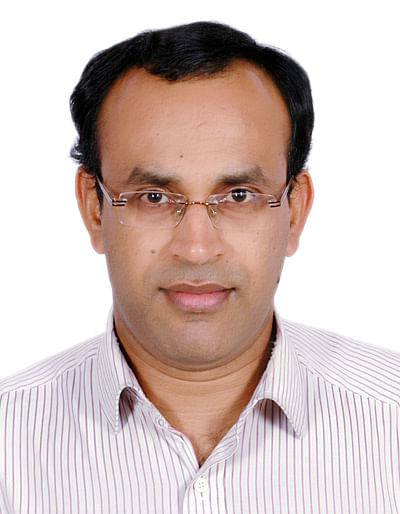Amidst sharp differences between the Nandan Nilekani-led Unique Identification Authority of India (UIDAI) and the Union home ministry over the collection of biometric details of resident Indians, prime minister Manmohan Singh has tried to resolve the tussle to some extent. But even after the clumsy patch-up exercise, several questions remain unanswered.

According to a decision of the cabinet committee on UIDAI headed by the prime minister, the UIDAI, apart from covering 20 crore population, it will now capture the biometric details of an additional 40 crore people in 16 states. It claims to have so far covered 17 crore residents. The National Population Registry (NPR) under the home ministry, will capture the biometric details of the remaining 60 crore people.
While ending the turf war, the committee seems to have tried to placate both UIDAI chairman Nilekani and home minister P Chidambaram by slicing the population cake into two. But the question of duplication remains. Chidambaram does admit some duplication in the task, but he insists that such problems will arise in mega scheme covering the entire 120 crore population.
The home minister also claims that wherever the UIDAI collects the biometric details, the same will not be captured by the NPR. Instead the latter will use the former’s data.
Despite the clear-cut division of information gathering, the home ministry will also set up its camps across the country and collect all other details except the biometric for NPR purposes. If a person has already given his biometric data, he can disclose it at the camp and submit all other details.
This means that a person who has enrolled himself for Aadhaar number under UIDAI, has to visit another camp set up by the RGI authorities to prepare NPR data and get the multi purpose national identity card, as it is mandatory.
If a person does not have a UID number, he can get both Aadhaar number and the NPR card after providing his biometric details at one of the ministry’s camps conducted for collecting details for NPR. According to the home minister, the biometric details of those having Aadhaar numbers will be verified with the NPR data and in case of variance, the Aadhaar data will be corrected.
It means that 17 crore people, who have sought or received Aadhaar, will have to mandatorily enrol for NPR also. Another 40 crore people, for which UID Authority now has the mandate to enrol in next 18-20 months, will also have to visit the NPR camp. They will get the NPR card with the same Aadhaar number. If a person directly goes to the NPR centre without visiting the Aadhaar camp he too can get the citizenship card along with Aadhaar number on it.
Confused people
A senior official said, “If that is the agreed process, why should people go for Aadhaar enrolment? They can as well wait for the NPR camp. This has not been adequately answered by the government. In all probability, the confused people will be forced to go to both the camps for Aadhaar number and for citizenship card.”
After the UIDAI enrollment got embroiled in controversy following Chidambaram questioning the method adopted for capturing the biometric details, the UPA government was under pressure to salvage the Aadhaar scheme as it was the prime minister’s one of the pet projects. Besides, the government is banking heavily on Aadhaar to adopt electronic delivery system to plug leakages in the public distribution system. The Centre does not want to stop enrolment momentum of the UIDAI which is moving at a fast pace.
It is crucial for the government to link social welfare schemes such as PDS, old age pension and widow pensions with Aadhaar to check pilferage and reduce the subsidy burden. The government’s annual subsidy burden is over Rs 1 lakh crore.
Moreover, the UPA government, which is at the receiving end criticism owing to a series of corruption charges, is in a hurry to complete the Aadhaar enrolment to improve the social security delivery system. The UIDAI which has already conducted pilot projects about delivery systems like the MNREGS in Jharkhand, the LPG cylinder delivery system in Mysore, opening of bank accounts in Tumkur is getting ready to showcase its success in Aadhaar in Delhi soon to prove its usefulness.
Though the committee headed by the prime minister has fixed a deadline of mid-2013 for both the RGI and UIDAI, insiders say, the Congress leaders are keen that Aadhaar work is completed before the next Lok Sabha poll, even if the home ministry does not do so.
The government seems to be confident that UIDAI will complete its the task by June 2013, and start rolling out subsidy scheme only to targeted beneficiaries through Aadhaar number holders.
Nandan Nilekani was brought in by the government to head UIDAI to send a message to the global community that it was serious about reforms and involvement of successful corporate sector leaders in governance. If UIDAI fails at this juncture, the UPA’s image would be dented further. Hence, the prime minister worked over time to bring about a truce between Nilekani and Chidambaram.
